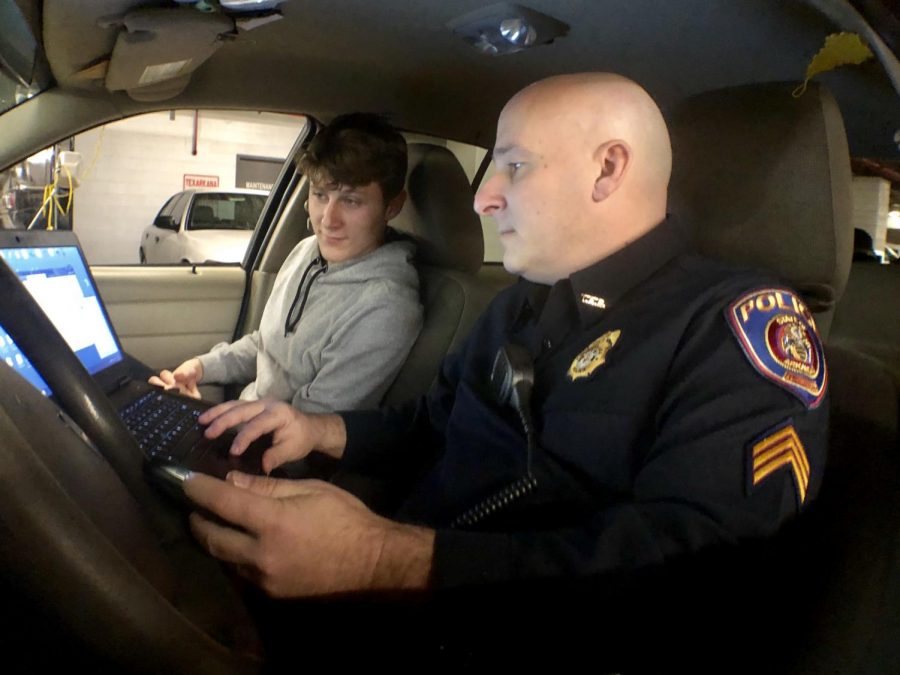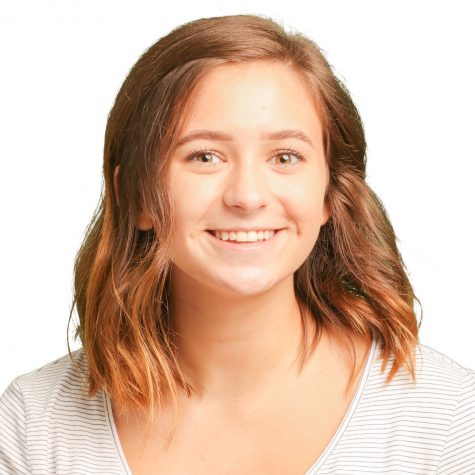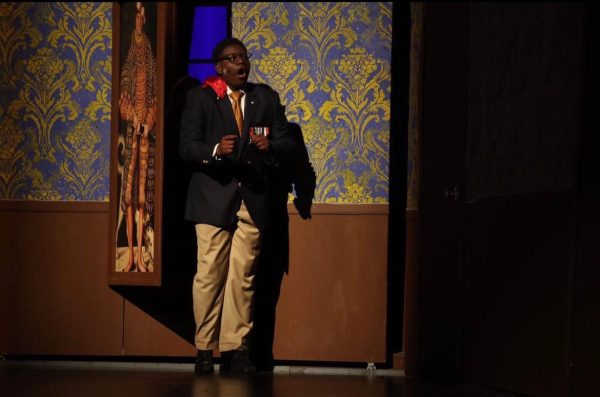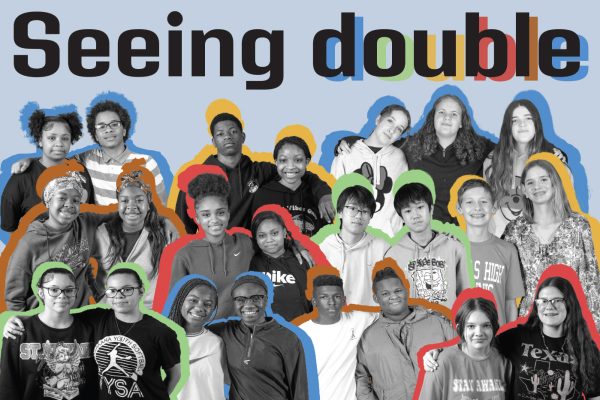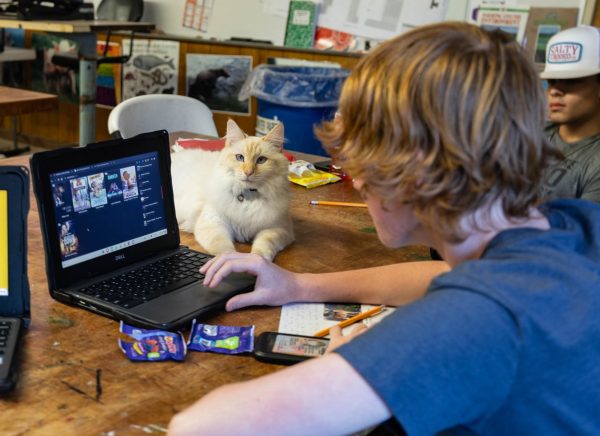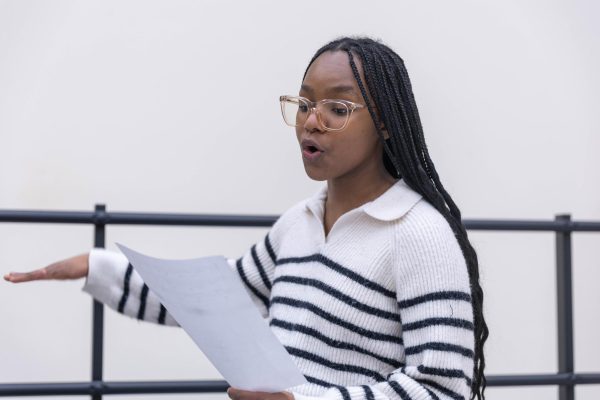New sheriff in town
Program allows students to shadow law enforcement
Texarkana, Arkansas Sgt. Jeremy Gordon explains to senior Garrett Burks what he does on his laptop while on patrol. The Explore Program has allowed students to learn more about law enforcement careers for over 25 years.
February 25, 2019
For over 25 years, the Explore Program has served students interested in the aspects of law enforcement to experience day to day situations by pairing recruits with professions such as forgery detectives, patrol officers and dispatchers to see which field interests them.
Police Sergeant Kristi Benatte was once an Explore student for Garland County who discovered a desire to become a police officer. After years of mentoring and learning, she completed the civil service examination and became an official police officer.
“When I first started the program that I had been a part of in 2007, we had an abundance of people that were interested in being in law enforcement,” Benatte said. “We had an influx [of] so many people that were interested and signed up and went on ride alongs with us that we had to turn some of them down. Today we’re not facing the same situation. The Explore Program is still active, but we don’t have near the amount of interest that we’ve had in the past.”
Currently, the department does not have any active recruiters in the program. Each recruiter must be enrolled in school whether it is high school or college. Often, the students leave the program in August for college and are never able to complete the event.
“We’re at a point now to where policing is a hard job socially because a lot of the public look at it negatively. [Also], a lot of the negativity, unfortunately, comes from bad police officers.” Benatte said. “You have bad police officers, bad nurses, bad doctors and bad teachers, but whenever it’s a bad police officer, it’s usually going to outshine the good.”
Kristi Benatte actively searches for new recruits at school community fairs and career fairs. This spreads the awareness of the program to increase the likelihood of gaining more recruiters.
“When I was growing up, a police officer was something that was highly looked up toward. They were well respected in the community.” Benatte said. “We rarely heard of a bad police officer, but nowadays it isn’t like that. When I took the civil service exam in 2005, I took it with almost 60 people. Out of that 60, 25 made it. This last test in 2018 had 12 participants. And out of that 12, none passed.”
The general orders of the program state that a police explorer must be the age of 16 at the least due to the nature of the law enforcement experience and the risks involved.
“I get discouraged sometimes that we don’t have as many people wanting to be police officers, but then I also see that it’s happening all across the board such as our hiring as well,” Benatte said. “On the good side, the police Explorers that we do have are very successful.”
One successful police Explorer, Officer Tanner Freeman, started at the age of 15. By the time he was 20 years old, he was in a police car writing reports and taking part in investigations. Freeman is one of the youngest K-9 officers employed at the Texarkana Texas Police Department.
“I think the Explore Program is a great program, but there’s always room for improvement. I think that we’re having to adjust with the times. When we have a lot of explorers, only a fraction of them realize that they actually want to stay and want to be a police officer. Usually, within the first time or two of [participating] in the program, an explorer will find out if policing is actually for them or not.”


